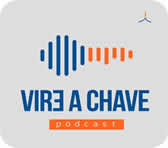Non-consensual deepfake porn:
searching for a model of criminalization
Views: 13064DOI:
https://doi.org/10.5281/zenodo.8380977Keywords:
Deepfake, Non consensual pornography, Image-Based Sexual Abuse, Sexual Freedom, Internet ControlAbstract
The phenomenon of deepfakes is relatively recent and potentially devastating. The possibility of images and videos manipulation to insert the face and voice of another person brings with itself several legal and ilegal perspectives of use. Despite the possibility of using the technology in commercial and contractually legitimate ways, it is known that the dilution of the boundaries of reality in mass audiovisual materials can be used for public humiliation of female sexuality. The present work will seek to understand the phenomenon in such perspective, from a criminological perspective, in order to contribute to the identification of essential elements for a criminalization process. In this context, it will seek to identify which contributions can be extracted from the existing normative constructions. Deepfakes are studied as an evolution in the image-based sexual abuse, in which the offender does not depend on the willingness of the victim in participating in the sex scene, but is free to artificially develop the sexual behavior that he deems most offensive to her sexual dignity. The criminal models brought by foreign legislation will be presented and studied in search of the construction of an ideal type that contemplates the punitive sphere but also meets the needs of control of networks to mitigate the unbridled sharing of this type of material.
Downloads
Publication Facts
Reviewer profiles N/A
Author statements
Indexed in
- Academic society
- Instituto Brasileiro de Ciências Criminais
- Publisher
- Editora Revista dos Tribunais (RT)
References
ADJER, Henry et al. The State of Deepfakes: Landscape, Threats and Impact, 2019. Disponível em www.deeptracelabs.com.
ALBERGARIA, Pedro Soares de; LIMA, Pedro Mendes. “O crime de detenção de pseudopornografia infantil – Evolução ou Involução?”, Julgar, nº. 12 (2010).
CESARI, Claudia. “Editoriale: L’impatto delle nuove tecnologie sulla giustizia penale – un orizzonte denso di incognite”, Revista Brasileira de Direito Processual Penal, Vol. 5, nº. 3 (2019).
CITRON, Danielle Keats. "Sexual Privacy", The Yale Law Journal, 128 (2019).
DELFINO, Rebecca A. "Pornographic Deepfakes: The Case for Federal Criminalization of Revenge Porn’s Next Tragic Act", Fordham Law Review, Vol. 88 (2019).
FARIA, Fernanda Cupolillo Miana de; ARAÚJO, Júlia Silveira; JORGE, Marianna Ferreira. "Caiu na rede é porn: Pornografia de Vingança, Violência de Gênero e Exposição da 'Intimidade'", Contemporânea-Revista de Comunicação e Cultura, Vol. 13, nº 3 (2015).
FRANÇA, Leandro Ayres et al. "A criminalização da revenge porn: análise do art. 218-C (Código Penal)", Boletim IBCCRIM, Ano 26, Nº 315 (2019).
GIESEKE, Anne Pechenik. "‘The New Weapon of Choice': Law's Current Inability to Properly Address Deepfake Pornography". Vanderbilt Law Review, Vol. 73, nº 5 (2020).
HALL, Holly Kathleen. "Deepfake Videos: When Seeing Isn't Believing", Catholic University Journal of Law and Technology, Vol. 27, nº 1 (2018).
HARRIS, Douglas. "Deepfakes: false pornography is here and the law cannot protect you", Duke Law & Techonology Review, Vol. 17, nº 1 (2019) .
LAW COMISSION OF ENGLAND AND WALES. Intimate Image Abuse: A Consultation Paper. 2021. Disponível em: https://www.lawcom.gov.uk/project/taking-making-and-sharing-intimate-images-without-consent/.
LEITE, Inês Ferreira. "A tutela penal da liberdade Sexual“, Revista Portuguesa de Ciência Criminal, ano 21, nº 1 (2011).
LINS, Beatriz Aciolly. "‘Ih, vazou!': pensando gênero, sexualidade, violência e internet nos debates sobre “pornografia de vingança”, Cadernos de Campo, Vol. 25 (2017).
MENDES, Soraia da Rosa. Criminologia Feminista: Novos Paradigmas. São Paulo: Saraiva, 2014.
MESKYS, Edvinas et al. " Regulating deep fakes: legal and ethical considerations", Journal of Intelectual Property Law & Practice, Vol. 15, nº 1 (2020).
MIR PUIG, Santiago. Derecho Penal: Parte General. Barcelona: Repperetor, 2006
ÖHMAN, Carl. "Introducing the pervert’s dilemma: a contribution to the critique of Deepfake Pornography”, Ethics and Information Technology, Vol. 22 (2020). Disponível em <https://doi.org/10.1007/s10676-019-09522-1>.
PALMA, Maria Fernanda. Direito Penal: conceito material de crime, princípios e fundamentos. Teoria da lei penal: interpretação, aplicação no tempo, no espaço e quanto às pessoas. Lisboa: AAFL, 2017.
PALMA, Maria Fernanda. "Os temas e os problemas das propostas legislativas de 2019 sobre violência doméstica e crimes sexuais – O Direito Penal da intimidade sexual e familiar", Anatomia do Crime, nº 9 (2019).
PIMENTEL, Elaine. “Criminologia e feminismo: um casamento necessário”, VI Congresso Português de Sociologia (2008). Disponível em: http://www.susepe.rs.gov.br/upload/1367011744_Criminologia%20e%20feminismo%20um%20casamento%20necess%C3%A1rio.pdf.
POWEL, Anastacia; HENRY, Nicola. Sexual Violence in a Digital Age. Londres: Macmillan Publishers, 2017.
PRADHAN, Prajakta. “AI Deepfakes: The goose is cooked?”, University of Illinois Law Review, 2020. Disponível em: <https://www.illinoislawreview.org/blog/ai-deepfakes/>
ROXIN, Claus. "O conceito de Bem Jurídico como padrão crítico da Norma Penal posta à prova", Revista Portuguesa de Ciência Criminal, Ano 23, Nº 1 (2013).
ROXIN, Claus. Derecho Penal: Parte General. Tomo 1: Fundamentos. La estructura de la Teoria Del Delito. Madrid: Civitas, 1997.
SYDOW, Spencer Toth; CASTRO, Ana Lara Camargo de. Exposição Pornográfica não consentida na internet: da pornografia de vingança ao lucro. Belo Horizonte: Editora D'Plácido, 2017.
SZYMANSKI, Dawn M.; MOFFITToffitt, Lauren B.; Carr, Erika R.. "Sexual Objectification of Women: Advances to Theory and Research", The Counseling Psychologist, Vol. 39 (1), 2011.
Documentos normativos
Austrália. Parliament of New South Wales. Crimes Amendment (Intimate Images) Bill 2017. Disponível em https://legislation.nsw.gov.au/view/html/bill/f2ad48a2-6a84-456c-81b9-d2a64587ad1a
Australia. Parliament of Western Australia. Criminal Law Amendment (Intimate Images) Act 2019. Disponível em https://www.legislation.wa.gov.au/legislation/statutes.nsf/law_a147218.html
Brasil. Decreto-Lei nº 2.848/1940 – Código Penal. Disponível em http://www.planalto.gov.br/ccivil_03/decreto-lei/del2848compilado.htm
Brasil. Lei nº. 8.069/90 – Estatuto da Criança e do Adolescente. Disponível em http://www.planalto.gov.br/ccivil_03/leis/l8069.htm
Brasil. Lei nº 12.965/2014 - Estabelece princípios, garantias, direitos e deveres para o uso da Internet no Brasil. Disponível em http://www.planalto.gov.br/ccivil_03/_ato2011-2014/2014/lei/l12965.htm
Conselho da Europa. Convenção sobre o Cibercrime. Budapeste, 23 de novembro de 2001.
Estados Unidos da América. H.R.3230 ‒ Defending Each and Every Person from False Appearances by Keeping Exploitation Subject to Accountability Act of 2019. Disponível em: https://www.congress.gov/bill/116th-congress/house-bill/3230/text
Estados Unidos da América. California. Assembly Bill nº 602 ‒ Depiction of individual using digital or electronic technology: sexually explicit material: cause of action. Disponível em: https://leginfo.legislature.ca.gov/faces/billTextClient.xhtml?bill_id=201920200AB602.
Estados Unidos da América. Texas. Senate Bill nº 751 – An Act relating to the creation of a criminal offense for fabricating a deceptive video with intent to influence the outcome of an election. Disponível em https://capitol.texas.gov/tlodocs/86R/billtext/html/SB00751F.htm.
Estados Unidos da América. Code of Virgínia ‒ § 18.2-386.2. Unlawful dissemination or sale of images of another. Disponível em https://law.lis.virginia.gov/vacode/18.2-386.2/#:~:text=Any%20person%20who%2C%20with%20the,or%20female%20breast%2C%20where%20such
Portugal. Decreto-Lei nº 48/95 – Código Penal. Disponível em http://www.pgdlisboa.pt/leis/lei_mostra_articulado.php?nid=109&tabela=leis
Reportagens
Alptraum, Lux, “Deepfake Porn Harms Adult Performers, Too”, Wired, 15 de January de 2020. https://www.wired.com/story/deepfake-porn-harms-adult-performers-too/.
Ayyub, Rana. "In India, Journalists Face Slut-Shaming and Rape Threats", The New York Times, 22 de maio de 2018. https://www.nytimes.com/2018/05/22/opinion/india-journalists-slut-shaming-rape.html
BBC News. Mother ‘used deepfake to frame cheerleading rivals’, 15 de março de 2021. https://www.bbc.com/news/technology-56404038
Cahlan, Sarah. “How misinformation helped spark an attempted coup in Gabon”, The Washington Post, 13 de fevereiro de 2020. https://www.washingtonpost.com/politics/2020/02/13/how-sick-president-suspect-video-helped-sparked-an-attempted-coup-gabon/
City of London Police. “City worker jailed for creating fake porn profiles of colleague who rejected him”. http://news.cityoflondon.police.uk/r/1028/city_worker_jailed_for_creating_fake_porn_profile
Coldewey, Devin. “DEEPFAKES Accountability Act would impose unenforceable rules ‒ but it’s a start”, Tech Crunch, 13 de junho de 2019.
Downloads
Published
How to Cite
Issue
Section
License
Os direitos autorais dos artigos publicados são do autor, com direitos do periódico sobre a primeira publicação.
Os autores somente poderão utilizar os mesmos resultados em outras publicações indicando claramente este periódico como o meio da publicação original. Se não houver tal indicação, considerar-se-á situação de autoplágio.
Portanto, a reprodução, total ou parcial, dos artigos aqui publicados fica sujeita à expressa menção da procedência de sua publicação neste periódico, citando-se o volume e o número dessa publicação. Para efeitos legais, deve ser consignada a fonte de publicação original.



 Português (Brasil)
Português (Brasil)
 English
English
 Español (España)
Español (España)







